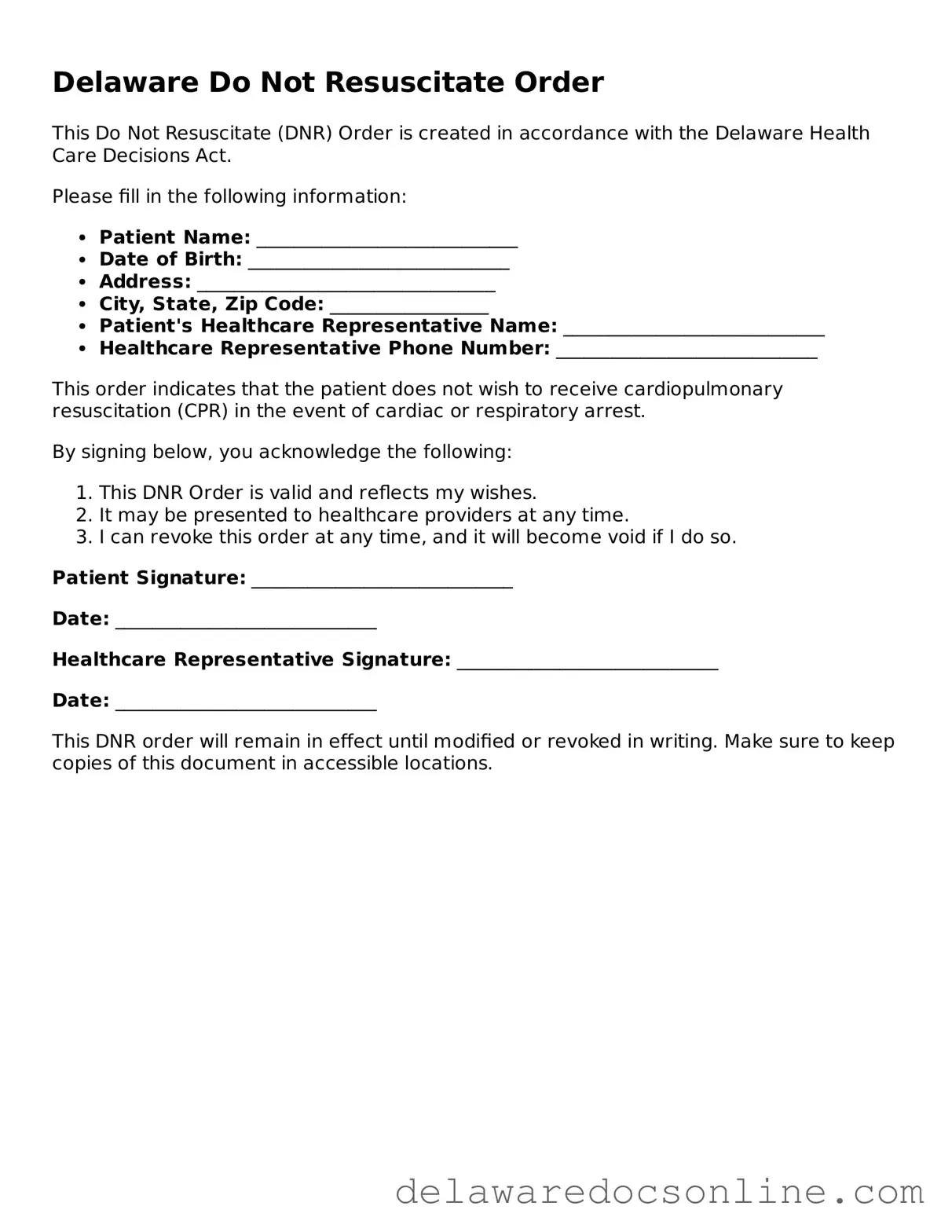Attorney-Verified Do Not Resuscitate Order Document for Delaware
A Delaware Do Not Resuscitate Order (DNR) form is a legal document that allows individuals to express their wishes regarding resuscitation efforts in the event of a medical emergency. This form ensures that medical personnel understand and respect a person's desire not to receive life-saving treatments. Understanding the DNR process can help individuals make informed decisions about their healthcare preferences.
Make Your Do Not Resuscitate Order Now

Attorney-Verified Do Not Resuscitate Order Document for Delaware
Make Your Do Not Resuscitate Order Now

Make Your Do Not Resuscitate Order Now
or
⇓ PDF File
Need speed? Complete the form now
Edit, save, download — finish Do Not Resuscitate Order online with ease.